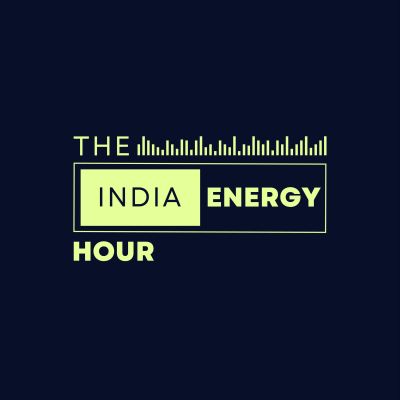The India Energy Hour podcast features in-depth conversations with leading energy, development & climate experts from academia, civil society, & the government. Through these interviews, we explore Indian energy transitions’ most pressing hurdles & promising opportunities. We look at the role that government, financial markets, social movements, & science plays in transition. Co-hosted by Shreya Jai, a leading energy & climate change reporter and Sandeep Pai, an energy transition researcher & author. The show is produced by Tejas Dayananda Sagar. Contact us at: theindiaenergyhour@gmail.com
https://theindiaenergyhour.com
Gesamtlänge aller Episoden: 2 days 16 hours 52 minutes
- 1
- 2
- 1
- 2
episode 19: Climate Resilience: Role of Water-Energy-Food Nexus | Episode 19
In the history of the global climate change conferences, it was in the recent COP26 that for the first time there was a separate Water pavilion. Water economy management has faced negligence on the climate discussion table till yet but it is time that water is given the centerstage. Water forms the key bridge in the energy-food supply chain...
episode 20: InvIT: New-age Funding for Grand Old Power sector | Episode 20
The power transmission network is the backbone of any nation's electricity grid. India needs to rapidly expand and overhaul its electricity grid network to undertake a successful energy transition and ensure reliable power to all.
While state-owned Power Grid Corporation of India (PGCIL) has led the growth of power transmission in India, a handful of private companies entered the fray in the last decade...
episode 21: Role of Mini Grids in Mega Challenge of Energy Access | Episode 21
In the last few years, India electrified nearly all its households by extending the national grid. Yet, reliability of available power is still a major concern. Some rural and remote areas still face power cuts of nearly 10-12 hours a day. Lack of reliable power prevents local economic development as factories and shops cannot function efficiently. Domestic expense also increases as households rely on expensive alternatives such as diesel run generators...
episode 22: Towards a thriving power market in India | Episode 22
Since 2003 when the electricity market in India opened up to private investment, variety of market mechanisms also came up along with it. Long term power purchase agreements have been backbone of power supply in the country. But other short and medium terms contracts have helped meeting sudden demand surge, acted as bridge supply and lately given sale options for renewable energy. Similar contracts have now emerged in the Gas market as well...
episode 23: Climate change impacts & adaptation: Does India have a plan? | Episode 23
The Intergovernmental Panel on Climate Change (IPCC) released a report recently that made global headlines. A fact from the report came out as a dire warning - over 40% of the world's population is "highly vulnerable" to climate change. However, there is much more in this report, which was authored by 270 researchers from 67 countries...
episode 24: Climate Stories from the Corners of India | Episode 24
Increased heat, drought and wildfires are all linked to climate change. Climate change has altered the physical geography in rural areas by disappearing flora and fauna, and other natural habitats that constitute the livelihood of the local people...
episode 25: Money, Scale, Intent: Path to Climate Mitigation | Episode 25
The Intergovernmental Panel on Climate Change (IPCC) working group III recently released a report on climate change mitigation. It assessed methods for reducing greenhouse gas emissions, and provided many policy solutions for how countries can contain the climate crisis.
To understand what this new IPCC report says, we interviewed Professor Navroz Dubash of the Center for Policy Research and Professor Harald Winkler of the University of Cape Town...
episode 27: India's annual summer affair with Coal/Power Crisis | Episode 26
As it has been happening for years now, coal and power crisis has gripped India yet again. Severe heatwaves caused due to climate crisis coupled with mismatch in coal demand and supply, led to a nationwide power crisis.
Electricity distribution utilities are resorting to power cuts, Centre is pushing imported coal and ministries of coal and railways are at loggerheads.
To guide us through this maze of crisis, our host Dr...
episode 27: Green Energy & Ecology: Land, Farmers & an Endangered Bird | Episode 27
India's renewable energy sector is facing an unusual dilemma - on one side are the ambitious targets set out by the government and on the other are problems and issues that come with rampant growth and increase in size of the industry.
One such issue is the GIB or Great Indian Bustard case in Rajasthan and Gujarat where 20 GW of solar and wind power projects face an uncertain future...
episode 28: Plastic Ban, Green Waste & Recycling 500 GW Renewable Energy | Episode 28
India recently enforced a ban on single-use plastic items across the country. This move will have a ripple effect across several industries, including FMCG. Experts, however, view this as a bold step towards waste management in the country. Of this, an impeding concern is over renewable energy waste.
Solar wastes are generated by discarded solar panels. India is planning to meet its 500 GW target of renewable energy by 2030...
- 1
- 2
- 1
- 2
